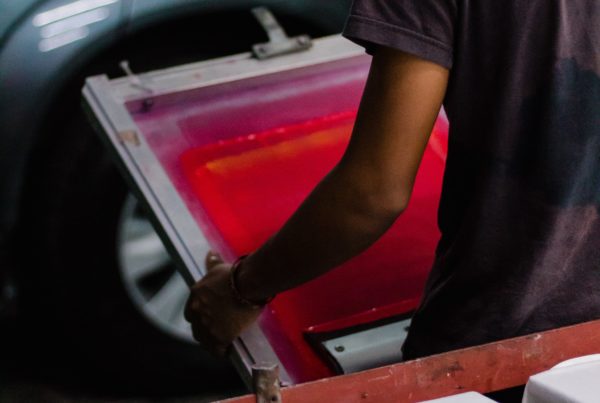
Steven Selzer, of Africa Aid, dropped us an email telling us about his worthy t-shirt based appeal:
Africa Aid, an international nonprofit founded by a group of post-grads from the University of California, San Diego, is announcing a nationwide call-to-action: buy a t-shirt and feed an African refugee child for one school year. Leveraging the momentum from their successful School Lunch Program, which currently provides healthy, nutritious lunches for more than 200 children in the Buduburam Refugee Settlement in Ghana, Africa Aid hopes to sell enough shirts between now and June 30 to fund the program for the remainder of this academic year, and its entire second year.
“Our model is different than most nonprofits in that we are innovative, lean, and diligently focused on the impact of dollars raised,” says Eric Woods, Africa Aid Founder and Executive Director. “By collaborating with American university students and faculty for program planning, and then working directly with our partners on the ground in Ghana, we eliminate middlemen and keep our overhead costs low, enabling us to feed an African refugee child for a full school year through the sale of only one Africa Aid t-shirt.” Africa Aid is able to keep administrative and marketing costs related to t-shirt promotions low by relying on man-on-the-street guerrilla efforts at local universities, online social networking sites such as MySpace (http://www.myspace.com/africaaid), and word-of-mouth buzz.
Entering into only their third year of operation, Africa Aid is fuelled by the passion of its young but dedicated staff. In the Fall of 2005, Woods and Steven Selzer, the organization’s marketing director, travelled to Ghana to establish the organization’s flagship program, Project Aya. This unique program, the first of what Africa Aid hopes to be many more to come, is a community partnering initiative that links underdeveloped communities in Africa—in this case, the Buduburam Liberian Refugee Settlement in Ghana—to American sponsor cities such as San Diego, who provide support through local universities. The Africa Aid model was constructed to address four distinct, but interconnected issues—education, public health, water and sanitation, and economic empowerment—acknowledging that the road out of poverty requires a combined approach to all four.
The School Lunch Program (SLP) is an example of Africa Aid tackling all four interconnected poverty issues within one exciting program. By providing clean water and a nutritious daily lunch to more than 200 underprivileged refugee students, the SLP currently supplies the necessary incentive for students to participate in school, while increasing their ability to learn by improving their nutritional well-being. Working with African Refugee NGO partner, Self-Help Initiative for Sustainable Development (SHIFSD), Africa Aid has constructed a kitchen and hired several mothers of recipient children as cooks in the name of improving the economic status of women in the Buduburam community. To solidify a true local connection, Africa Aid has worked closely with their student organization at the University of California, San Diego to create a health and nutrition curriculum that supplements each school lunch in Africa. The SLP will serve as a jumping point for the development of Africa Aid’s micro-lending program, which will create economic opportunities for collectives of African women refugees who are notably also the mothers of children in the SLP.
“We are thrilled with the success that we have seen at our school in Buduburam,” says Selzer. “Following the completion of our kitchen and the hiring of local staff, we have been fully operational since January and, through the proceeds from our t-shirt sales, are almost entirely funded through the end of this school year. Our focus for the next three months is to sell enough shirts to sustain the program into its second year, and hopefully, grow our capacity to reach even more children.”
Currently, t-shirt sales account for more than 80% of the funding required for the School Lunch Program. With a strong presence on San Diego college campuses and a growing reputation globally among socially-minded young adult consumers due to their online marketing efforts, demand is increasing. T-shirts are available for purchase on the organization’s Web site at www.africaaid.org.



